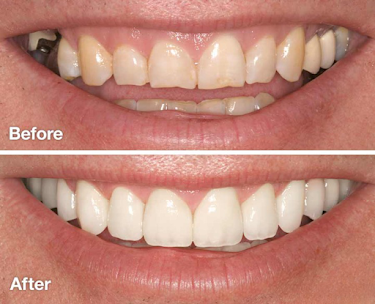Exploring Holistic Dentistry Options: A Whole-Body Approach to Oral Health
When it comes to taking care of our teeth, most of us think of regular cleanings, fluoride toothpaste, and the occasional filling. But what if your dentist looked beyond just your mouth and considered your entire body and lifestyle when making treatment decisions?
That’s the
core idea behind holistic dentistry—a growing field that blends
traditional dental practices with a whole-body wellness approach.
What Is
Holistic Dentistry?
Also known
as biological or integrative dentistry, holistic dentistry recognizes
that your oral health is deeply connected to your overall health. Instead of
focusing solely on symptoms, holistic dentists aim to uncover root causes,
minimize exposure to harmful materials, and support the body’s natural ability
to heal.
They still
fill cavities, clean teeth, and perform root canals—but their tools,
techniques, and treatment philosophies often differ from traditional dentistry
Core
Principles of Holistic Dentistry
Let’s break
down the main elements that set holistic dentistry apart:
1. Biocompatible
Materials
Holistic
dentists avoid materials that could potentially cause allergic or toxic
reactions, such as mercury-containing amalgam fillings. Instead, they opt for biocompatible
alternatives like ceramic or composite resins that are gentler on the body.
2. Mercury-Free
and Mercury-Safe Practices
Removing old
amalgam (silver) fillings is often a key part of holistic care. But it’s not as
simple as drilling them out—proper safety measures are taken to prevent mercury
exposure to both the patient and the dental team.
3. Fluoride
Alternatives
While
conventional dentistry relies heavily on fluoride for cavity prevention,
holistic dentists may recommend natural demineralizing agents like
hydroxyapatite or xylitol, especially for those sensitive to fluoride.
4. Emphasis
on Nutrition and Lifestyle
In holistic
dentistry, food matters. Dentists may talk about your diet, sleep quality,
stress levels, and how these impact oral health. For instance, processed
sugar isn’t just a cavity risk—it’s also tied to inflammation and chronic
disease.
5. Connection
Between Oral and Systemic Health
The mouth is
often called “the gateway to the body,” and for good reason. Issues like gum
disease have been linked to conditions such as heart disease, diabetes, and
even Alzheimer’s. Holistic dentists work to reduce inflammation and support
systemic health through proper oral care.
6. Minimally
Invasive Techniques
From ozone
therapy to laser dentistry, holistic practices often favor less invasive, more
natural methods to support healing and reduce trauma to tissues.
Who
Should Consider Holistic Dentistry?
Holistic
dentistry can be a great option for:
- People with allergies or
sensitivities to dental materials
- Those seeking a natural, less
invasive approach to dental care
- Patients with chronic health
conditions who want dental care that supports overall wellness
- Anyone looking for a more personalized,
whole-body approach to oral health
Things to
Keep in Mind
While
holistic dentistry has many benefits, it’s important to do your research. Not
all holistic practitioners are the same—some may lean more heavily into
alternative therapies, while others offer a more balanced blend of traditional
and holistic methods.
Look for
practitioners who are licensed dentists with additional training in holistic
approaches, and don’t hesitate to ask about their methods, materials, and
philosophy during your first consultation.
Final
Thoughts
Holistic
dentistry is more than just a trend—it’s a shift toward treating patients as
whole people, not just a set of teeth. As more people become conscious of what
goes into their bodies and how lifestyle affects health, holistic dentistry
offers a thoughtful, natural complement to modern dental care.
Whether
you're managing a chronic condition, concerned about toxic exposure, or just
looking to make more mindful health choices, exploring holistic dental options
might be the next step in your wellness journey.
Your smile,
after all, is connected to so much more than just your mouth.



Comments
Post a Comment